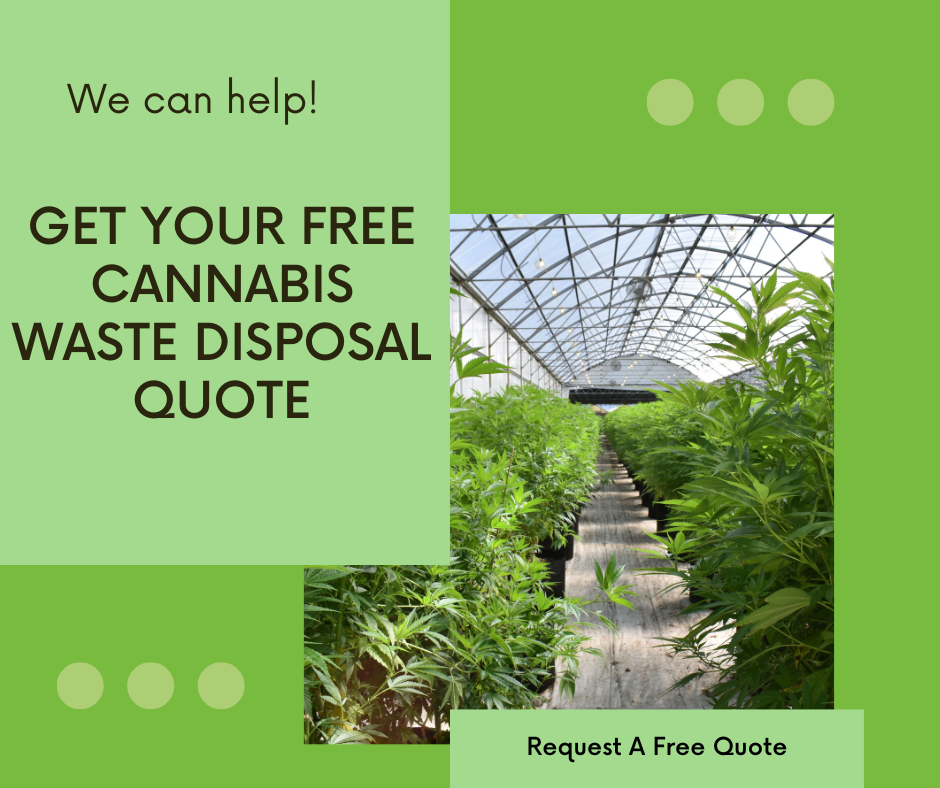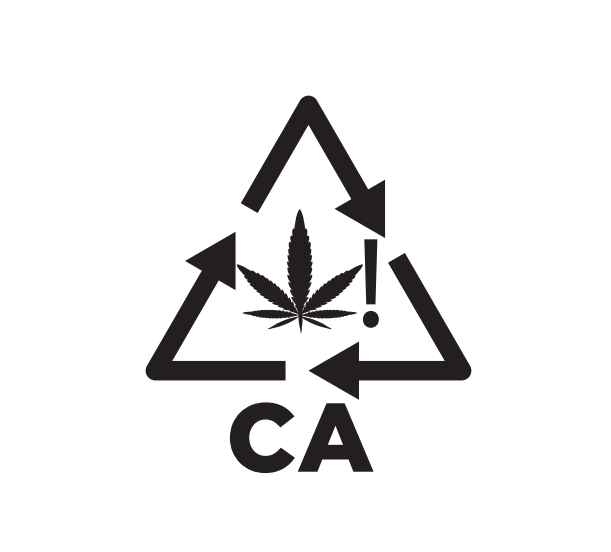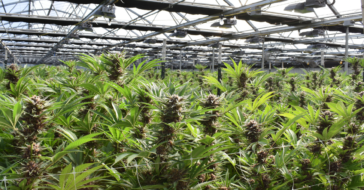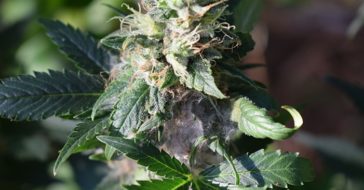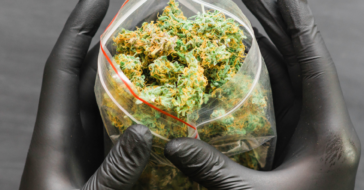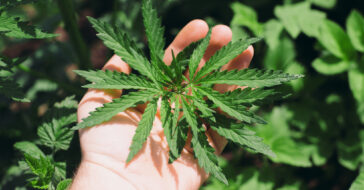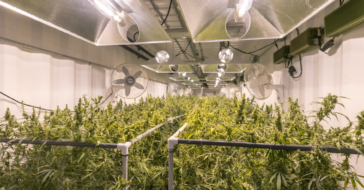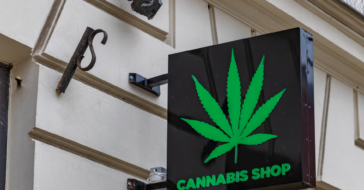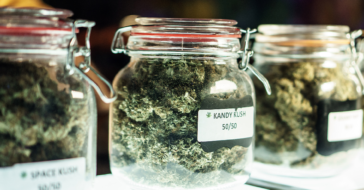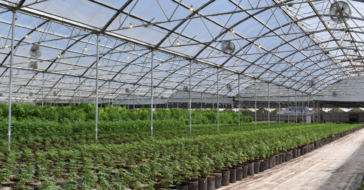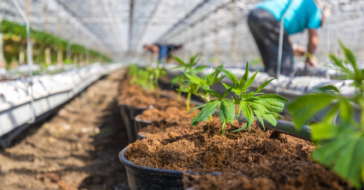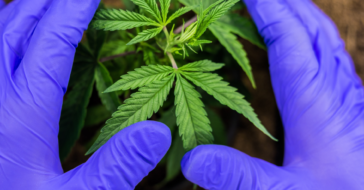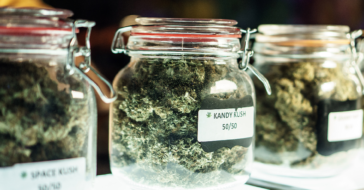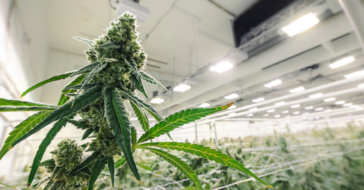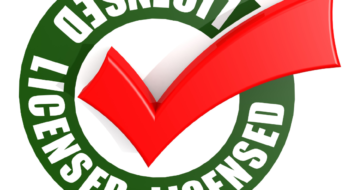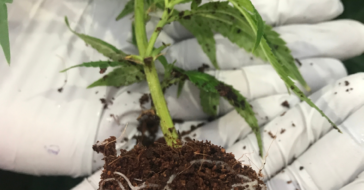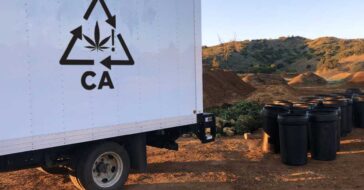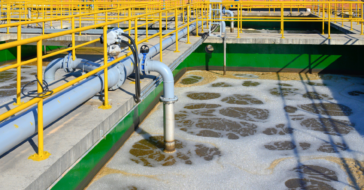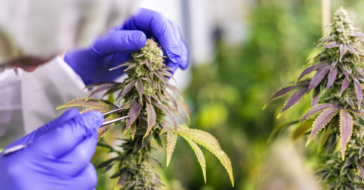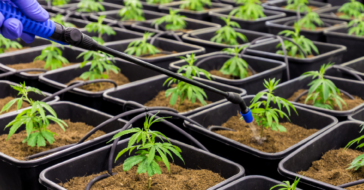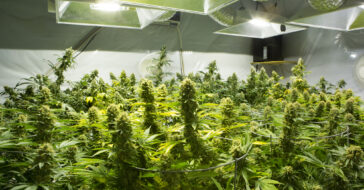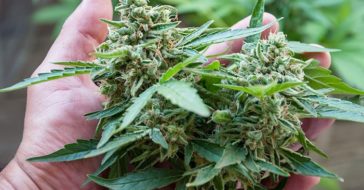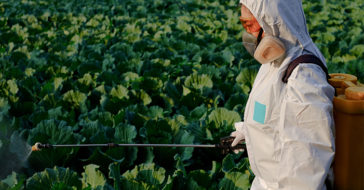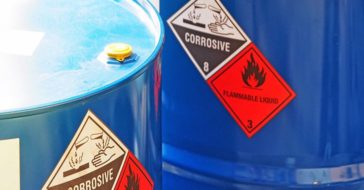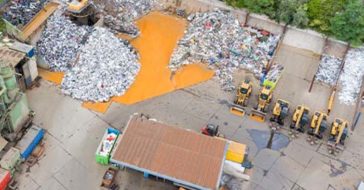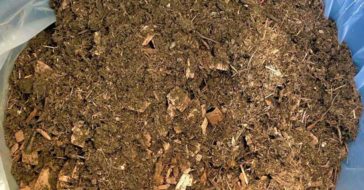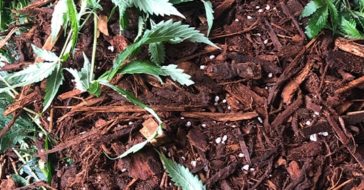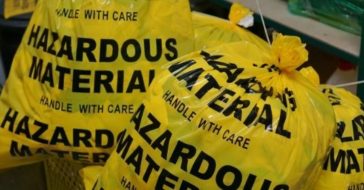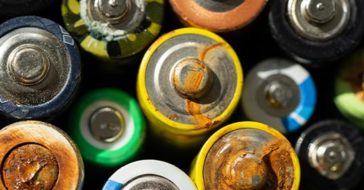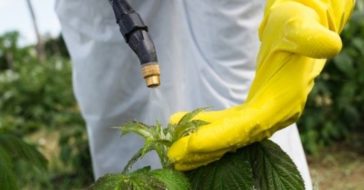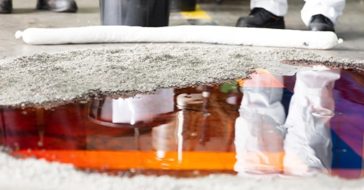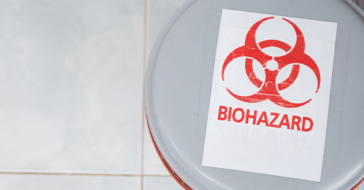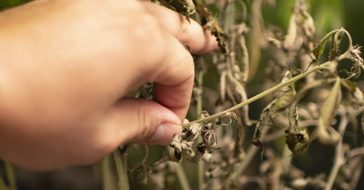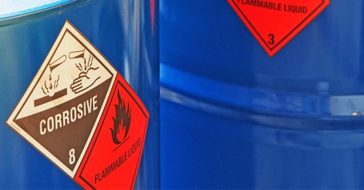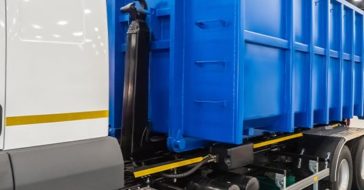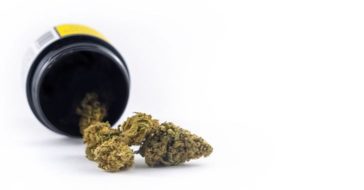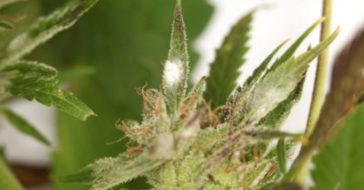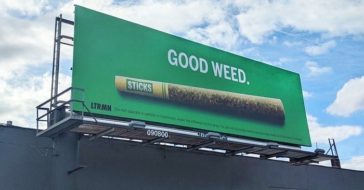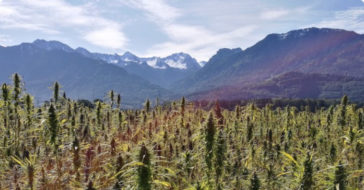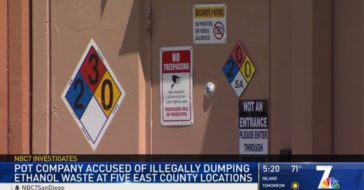If you’ve considered testing the waters and opening a cannabis business in California, you’ve likely already run across several terms like “track and trace” and “certificate of compliance.”
But what do they mean, and how do they apply to your business?
Whether you’re in the planning stages or have already established a presence in the market, in-depth knowledge of these cannabis terms is critical to the future and success of your cannabis or marijuana business:
- Cannabis Waste
- Track and Trace
- Waste Management Plan
- Non-Hazardous Cannabis Waste
- Hazardous Cannabis Waste
- Rendering Unusable and Unrecognizable
- Closure Plan
- Contaminated Soil
- Extraction Residue
- Trimming Waste and Root Ball
- Non-usable Cannabis
- Certificate of Compliance
- Compliance Audit
- Emergency Disposal
- Secure Transporter
Cannabis Waste
Cannabis waste is defined as any material intended for disposal that contains cannabis but is not considered hazardous 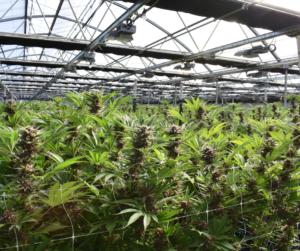 waste, according to the California Department of Cannabis Control (DCC). By definition, cannabis waste that consists solely of plant material is considered organic waste under Public Resources Code section 42649.8(d).
waste, according to the California Department of Cannabis Control (DCC). By definition, cannabis waste that consists solely of plant material is considered organic waste under Public Resources Code section 42649.8(d).
However, there are many types of cannabis waste likely within your operations. Although the state defines cannabis waste as non-hazardous, there are many types of waste that growers, cultivators and manufacturers generate during their cannabis operations.
This includes everything from extraction residue to packaging waste, trimming waste and even electronic waste. Some of this waste is considered non-hazardous, while other types of waste are hazardous. All require special disposal considerations, so it’s important to understand exactly how the waste you generate during cannabis operations must be disposed of according to regulations.
Track And Trace
Cannabis track and trace reporting requirements mandate that all cannabis and cannabis products are tracked from seed to sale using a state-mandated electronic system known as the Cannabis Track-and-Trace (CTT) system.
This system, operated by the California Department of Cannabis Control (DCC), enables comprehensive monitoring and documentation of cannabis throughout its lifecycle, from cultivation and manufacturing to distribution and retail sale.
In practical terms, track and trace involves assigning a unique identifier, such as a barcode or RFID tag, to each cannabis plant, batch of harvested material or individual cannabis product. This identifier must be associated with detailed information including the origin of the cannabis, cultivation practices, processing details, testing results, distribution records and sales transactions.
Every time cannabis or a cannabis product changes hands or moves between different stages of production or distribution, this information must be logged into the CTT system, ensuring transparency and accountability across the supply chain.
These stringent track and trace requirements help prevent diversion of cannabis into the illicit market, ensure product quality and safety for consumers, facilitate recalls if necessary, and provide data for regulatory oversight and taxation. Compliance with track and trace regulations is mandatory for all licensed cannabis businesses in California, from cultivators and manufacturers to distributors and retailers.
Waste Management Plan
A waste management plan is a comprehensive document that outlines how your company will manage, store, transport and dispose of any cannabis waste you generate. The plan must be submitted as part of the licensing application process and needs to be regularly updated to reflect any changes in waste handling procedures or regulations.
any cannabis waste you generate. The plan must be submitted as part of the licensing application process and needs to be regularly updated to reflect any changes in waste handling procedures or regulations.
The Waste Management Plan typically includes detailed information like:
- Procedures for collecting, storing and packaging different types of cannabis waste (plant material, extraction residue and contaminated packaging)
- Methods for rendering cannabis waste unusable and unrecognizable (more on this later)
- A plan addressing the secure transport of the waste to authorized disposal facilities
A waste management plan should also identify contingency measures for emergencies or unexpected events that may affect waste management practices.
Non-Hazardous Cannabis Waste
Non-hazardous cannabis waste includes a variety of materials generated throughout cannabis cultivation, processing and distribution that do not pose significant risks to public health or the environment.
Examples of non-hazardous cannabis waste include plant material like leaves, stems and root balls that are leftover after harvesting. This organic waste can often be composted or processed into other environmentally beneficial products.
Non-hazardous cannabis waste may also include packaging materials like cardboard boxes, paper labels and plastic containers that have not been contaminated with cannabis residues.
These materials are typically recyclable or can be disposed of in regular waste streams following appropriate state and local guidelines. It’s important as a cannabis business to segregate non-hazardous cannabis waste from hazardous materials and ensure proper disposal methods are followed.
Hazardous Cannabis Waste
Hazardous cannabis waste poses potential risks to public health or the environment due to their chemical composition or contamination.
contamination.
Examples include solvents and other chemicals used in cannabis extraction processes, which can be flammable or toxic if mishandled or improperly disposed of. These substances require specialized handling and disposal methods to prevent environmental contamination and ensure compliance with stringent regulatory standards.
Certain cannabis products that fail quality control tests, have been recalled or become contaminated during production can also be classified as hazardous waste. This includes products that exceed allowable limits for pesticides or heavy metals, which must be disposed of in accordance with hazardous waste disposal regulations to mitigate health risks.
Rendering Unusable And Unrecognizable
Rendering unusable and unrecognizable is a crucial process that prevents discarded cannabis products from going back into the market. This method involves mixing cannabis waste with other materials like soil, compost or even non-cannabis waste so that the original waste is now indistinguishable and unusable.
By blending the waste to the point where the original cannabis material cannot be identified or separated, this approach effectively ensures that the cannabis is no longer viable for any purpose.
The goal of rendering unusable and unrecognizable is to eliminate the possibility of unauthorized individuals accessing discarded cannabis and attempting to reintroduce it into circulation.
Closure Plan
Although no business wants to think about closing its door permanently, it’s important to have a plan in place for how to properly dispose of any cannabis products or waste should that occur. A closure plan does just that, laying out a step-by-step process for cannabis cultivators or manufacturing facilities on how operations will cease and how remaining inventory and waste will be disposed of.
If you’re a commercial real estate company that leases to cannabis operations of any kind, you may want to have a similar plan in place. If law enforcement abruptly shuts down an illegal cannabis grow facility, there may be waste left behind that you are likely tasked with disposing of according to state regulations.
Your closure plan should include a detailed inventory, emergency contact information and the name of licensed cannabis waste disposal companies that can respond quickly to ensure you can swiftly and safely dispose of any remaining items..
Contaminated Soil
Contaminated soil in cannabis cultivation can come from a number of sources, including the use of pesticides, herbicides, fertilizers and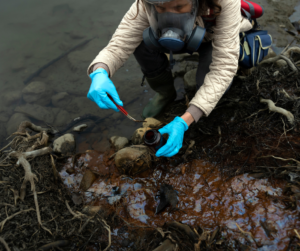 other agricultural chemicals. These substances may leach into the soil, potentially leading to contamination that can persist and affect the quality and safety of the environment.
other agricultural chemicals. These substances may leach into the soil, potentially leading to contamination that can persist and affect the quality and safety of the environment.
Improper disposal of cannabis waste, such as burying or dumping leftover plant material or chemicals, can also contribute to soil contamination over time.
The accumulation of contaminants in soil poses risks to ecosystems, groundwater and nearby communities, highlighting the importance of responsible waste management practices in cannabis operations.
It’s important to work with disposal companies that specialize in handling contaminated soil and other hazardous materials. These companies have the expertise to assess soil quality, conduct necessary testing for contaminants, and ensure that the waste is transported to a treatment, storage, and disposal facility (TSDF) if it cannot be remediated onsite.
Extraction Residue
Extraction residue refers to the leftover materials and substances that remain after the process of extracting cannabinoids and other compounds from cannabis plant material.
Depending on the extraction method used (such as CO2 extraction, ethanol extraction or hydrocarbon extraction), residue can include solvents, plant waxes, fats and other non-desirable components that are separated from the desired cannabinoids (like THC or CBD).
Proper management of extraction residue often involves handling and disposing of residual solvents and other byproducts according to specific protocols.
Trimming Waste And Root Ball
Trimming waste and root ball refer to two types of byproducts generated during cannabis cultivation.
Trimming waste includes the leaves, stems and other plant material that are trimmed off during the pruning and manicuring process of cannabis plants. This material is typically considered organic waste and can be composted or rendered unusable and unrecognizable according to regulatory guidelines to prevent diversion.
Root ball, on the other hand, refers to the mass of roots and soil that remain attached to cannabis plants after harvesting. This can vary in size depending on the cultivation method and plant size. Root balls are also classified as cannabis waste and must be managed properly to prevent soil contamination and adhere to waste disposal regulations.
Non-usable Cannabis
Non-usable cannabis refers to any cannabis or cannabis products that do not meet quality standards for sale or consumption. This can be due to a number of factors, from contamination to damage, expiration or regulatory non-compliance.
This category includes cannabis flower, extracts, edibles or any derivative products that have been deemed unfit for distribution or consumption according to state regulations.
Proper disposal of non-usable cannabis is crucial to prevent it from re-entering the market or posing health risks to consumers. State regulations often mandate specific disposal methods, including rendering the cannabis unusable and unrecognizable through mixing with other materials like soil or compost or through processes that destroy its integrity beyond recovery.
Certificate Of Compliance
A Certificate of Compliance is an official document issued by a regulatory authority or governing body to confirm that a product, service or entity complies with specific standards, regulations or legal requirements. In the context of cannabis regulation, a Certificate of Compliance is often issued to demonstrate that a cannabis business or operation meets a regulatory agency’s laws, rules and guidelines.
or entity complies with specific standards, regulations or legal requirements. In the context of cannabis regulation, a Certificate of Compliance is often issued to demonstrate that a cannabis business or operation meets a regulatory agency’s laws, rules and guidelines.
In California’s cannabis industry, a Certificate of Compliance may show that a cannabis waste disposal company is licensed and accredited at a local, state and federal level to manage both the transfer and disposal of hazardous and non-hazardous waste.
Compliance Audit
A compliance audit is a systematic review and evaluation process that assesses whether your cannabis business is adhering to relevant laws, regulations, policies and industry standards.
During this process, auditors typically examine various aspects of the cannabis business’s operations, including:
- Whether you have the correct licenses and permits
- If your operational processes comply with regulatory standards
- If your business is maintaining product quality
- Whether any security measures in place can prevent unauthorized access and theft
- Whether your record-keeping is accurate and up-to-date
Regulatory agencies, third-party auditing firms or internal audit teams typically conduct these audits to identify any non-compliance issues and recommend corrective actions. Businesses in the cannabis industry must undergo regular compliance audits to demonstrate ongoing adherence to regulations and maintain their licenses to operate legally.
Emergency Disposal
While cannabis businesses need regular waste disposal procedures in place, there may be times when your business requires emergency disposal services due to unforeseen circumstances that pose immediate risks to health, safety or the environment.
Situations that may require you to seek out emergency disposal companies include contamination from hazardous substances such as pesticides or chemicals, the discovery of mold or other pathogens that could compromise product safety, or a natural disaster like a fire or flood that damages cannabis inventory or waste.
If law enforcement authorities shut down an illegal grow operation, you may immediately need disposal services to take care of any cannabis material that must be disposed of promptly and safely.
In any of these scenarios above, it’s important to have a plan and reliable partner to handle emergency disposal efficiently and according to the law. Businesses should turn to licensed cannabis waste disposal companies that have the expertise and capacity to respond quickly to emergency situations.
Secure Transporter
In California, a secure transporter must be licensed to handle the specific type of cannabis waste generated by your business, whether it is hazardous or non-hazardous. This licensure ensures that the transporter complies with state regulations.
Keep in mind that as a cannabis business, you’re responsible for the waste you generate, from the moment it is created to when it is safely transported and disposed of at the appropriate TSDF. The transporter you choose must be secure, or in other words, licensed and insured.
Even for non-hazardous cannabis waste, from plant material to packaging waste and extraction residue, the transporter must follow protocols for safe handling, tracking and disposal to prevent diversion and ensure environmental compliance.
For hazardous cannabis waste, the security of the company that transports your waste is even more important. Hazardous waste can range from solvents to the chemicals used in extraction processes or even products that fail quality control tests due to contamination. A licensed hazardous waste transporter is required.
Depending on the type of cannabis business you operate, you may even need transporters who are licensed to handle medical waste or bio waste. This is particularly relevant for cannabis businesses involved in producing medical cannabis products, which may generate medical waste like used gloves, masks or any material contaminated with bodily fluids.
Licensed medical waste transporters have the expertise and facilities to manage these materials safely. By working with appropriately licensed secure transporters, you can help to ensure your business is maintaining its operational integrity and contributing to the safety and sustainability of the industry.

